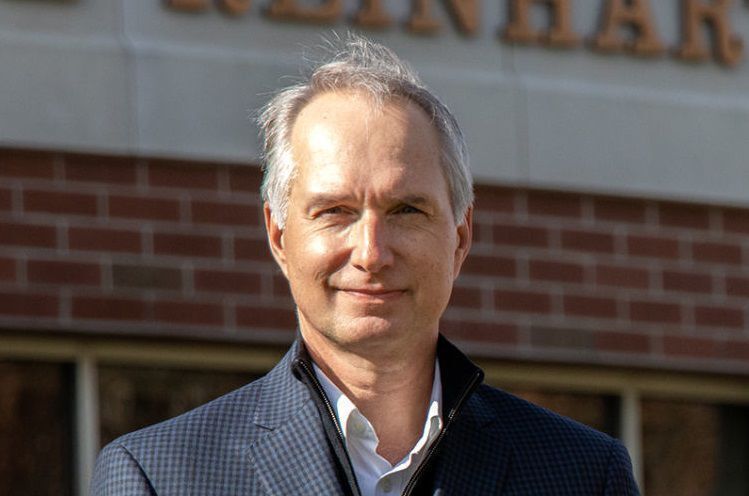Richard Kyte: Here’s why we should choose compassion over callousness
For 10 summers, my wife and I ran a miniature golf course in Colorado. It was located on a busy road lined with tourist attractions and motels. Just about every day somebody would walk up to the counter asking for money.
We were both Christians, raised to believe that our highest ethical duty is to love God and neighbor. As illustrated in the Parable of the Good Samaritan, such love is not just a sentiment; it requires being a neighbor to those in need.
But how do you put such love into practice when you are faced with a steady stream of drifters, grifters and addicts? Do you help everyone who asks? How much do you give? How do you determine who needs help the most?
We both agreed it was better to be fooled occasionally than to miss an opportunity to help someone in genuine need.
Usually, we could tell when someone was running a scam. One of the more popular ruses was to hold up a gas can, claiming their car had run out of gas and asking for money to get a couple gallons of fuel. You would inevitably see the same person a few days later, carrying their gas can in another part of town.
We gradually discovered that the more elaborate the story, the more likely it was to be a fiction. Those who simply asked for money were more likely to be sincere, grateful when we offered to go with them to the nearby convenience store to buy a sandwich.
One afternoon a man approached the counter, explaining that he had just run out of gas. He pointed to an old car pulled over on the side of the road. Here, I thought, is someone who really needs help. I walked over to the maintenance shed, pulled out a gas can and handed it to him. I watched as he walked across the street, poured the gas into his tank, and then opened the trunk and tossed the gas can inside. He waved to me with one finger, got into his car and drove off.
When that sort of thing happens a few times, you tend to get pretty cynical about human nature. If you are not careful, it is not long before you start classifying people on the basis of whether they “deserve” help. But going down that path is a moral dead end.
The question each of us must ask ourselves is this: What would I do if I found myself hungry, cold and exhausted? Would I not use any available means to secure food and shelter?
The tendency to separate the “deserving” from the “undeserving” underlies many of the common objections one hears to helping those who are homeless. “Why don’t they get a job?” someone might say. Or, “If we build more shelters, more homeless people will just move into our city.” Underlying every such objection is an implicit judgement: Those people don’t deserve our help.
About 600,000 people are homeless in our nation today. Some are addicted to drugs or alcohol; some suffer from mental illness; some have been victims of domestic violence. Still others just had bad luck: they lost their job, had health problems or couldn’t afford to pay rent. Such problems have always been with us. So why is homelessness today a much bigger social issue than it was, say, 30 or 40 years ago?
The chief cause is simple. We don’t have enough housing in our most populated areas for the people who live there. There are many contributing factors, including short-sighted development and misguided zoning policies that make it more profitable to build large single-family homes than multi-unit residences with several small apartments.
Another factor, often overlooked, is that the past century of steady economic progress means those who have strong social connections and financial stability have increasingly clustered together. They are able to provide for themselves and those closest to them without needing much help, but that means they are not available to provide support for those who do not have the same advantages. The end result is that we have fewer communities comprised of people with varying levels of need.
So where do those people go who, for one reason or another, cannot live without the assistance of others and do not have sufficient resources to meet their needs on their own? They are pushed from one place to another until they end up together, in shelters, in tent cities or under bridges — entire populations of people who in a less economically advanced society would be widely distributed throughout many different communities comprised of people who routinely help one another as a matter of course.
This is how we end up with 55 precent of the nation’s homeless population residing in our wealthiest states: California, New York, Florida, Washington and Texas.
This situation isn’t necessarily anyone’s fault. It is human nature to want a better life among people with whom one feels comfortable. The difference today, as compared to earlier times in the world’s history, is that so many more people have the ability to do that. And those who do not have the ability are worse off for it.
There are no quick fixes to the problem of homelessness in this country. The undersupply of housing is something that happened over a period of decades; it is going to take many years to correct. In the meantime, each community is going to have to come up with short-term solutions to help those who are struggling: shelter, food, security, health care.
It is not a question of who deserves help; it is a question of who needs it. The only question we should ask ourselves is this: are we being good neighbors to those in need?

